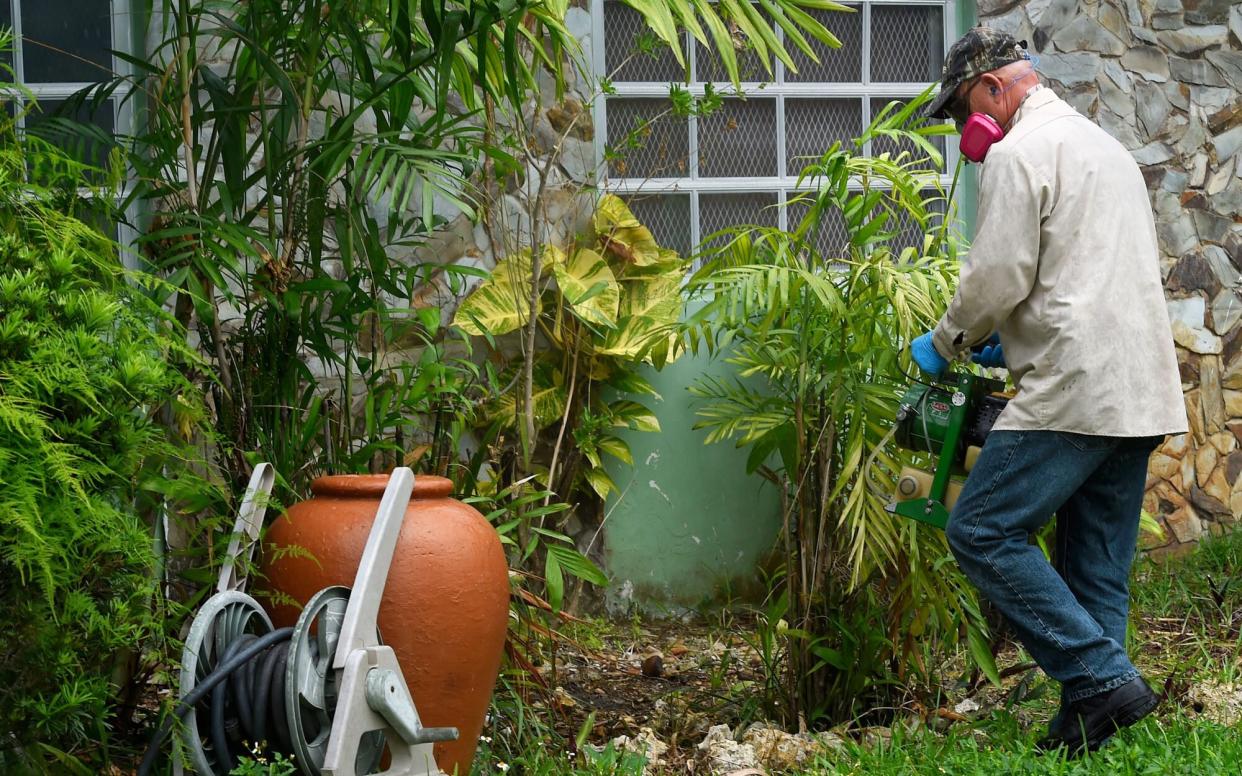What to Know Now That Zika Has Been Confirmed in Florida

AFP/Getty Images
The Centers for Disease Control issued a warning for a neighborhood in Miami where mosquitoes are spreading the Zika virus.
CDC is advising pregnant women not to travel to Wynwood, which is north of downtown Miami. The advisory is for anyone who had been in the area since June 15.
Florida is the first state in the continental U.S. to have local transmission of Zika by mosquito. Officials expect other southern states to have potential outbreaks, however, as the Aedes aegypti mosquito—which can carry the virus—is present in the region.
“Pregnant women should not travel to this area,” the notice states. If they do, they should take precautions to avoid mosquito bites.
Zika can also be spread by sex, so partners of pregnant women are also advised to prevent mosquito bites.
The best methods for avoiding mosquito bites is to use repellant and wear loose, long-sleeved shirts and pants that fully cover the legs. Get more information on why mosquitoes are more likely to bite some people than others here.
For those who live in the neighborhood, CDC advises pregnant women to get tested for Zika in the first and second trimester. That is not only an advisory for pregnant women in this Miami neighborhood, however: CDC advises all pregnant women in the U.S. to be assessed for possible Zika exposure at prenatal doctor visits.
Women planning a pregnancy should wait at least 8 weeks after potential exposure to try to conceive, according to the CDC, while men should wait six months.
CDC has issues advisories about Zika in dozens of countries, from South and Central America to the Caribbean to the South Pacific. The typical symptoms of Zika are mild, including a fever and flu-like symptoms, and only one in five people who contract the virus even show those. However, Zika can cause severe birth defects and more serious immune disorders.
